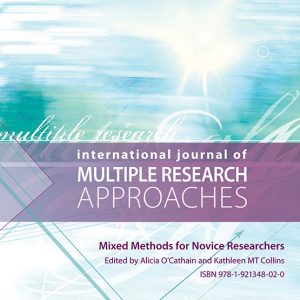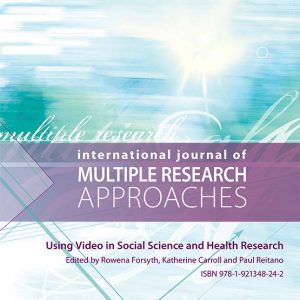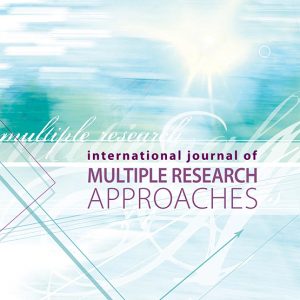3(2).1. Call for mixed analysis: A philosophical framework for combining qualitative and quantitative approaches
$30.00
Description
Call for mixed analysis: A philosophical framework for combining qualitative and quantitative approaches
ANTHONY J ONWUEGBUZIE
Department of Educational Leadership & Counseling, Sam Houston State University, Huntsville TX, USA
R BURKE JOHNSON
College of Education, University of South Alabama, Mobile AL, USA
KATHLEEN MT COLLINS
Department of Curriculum & Instruction, University of Arkansas at Fayetteville, Fayetteville AR, USA
ABSTRACT
We provide a philosophical justification for analyzing qualitative and quantitative data within the same study. First, we present several recent typologies of analyses in social science research that incorporate both monomethod (i.e. purely quantitative research or purely qualitative research) and mixed research studies. Second, we discuss what has been referred to as the fundamental principle of empirical data analysis, wherein both qualitative and quantitative data analysis techniques are shaped by an attempt to analyze data in a way that yields at least one of five types of generalizations. Third, building on the frameworks of Denzin and Lincoln (2005), Heron and Reason (1997) and Johnson and Onwuegbuzie (2004), we compare and contrast three qualitative-based paradigms (i.e. constructivism, critical theory, participatory), one quantitative-based paradigm (i.e. postpositivism) and one mixed research-based paradigm (i.e. pragmatism) with respect to three axiomatic components (i.e. ontological, epistemological and methodological foundations) and seven issues (i.e. nature of knowledge, knowledge accumulation, goodness or quality criteria, values, ethics, inquirer posture and training). Also, we link each paradigm to data analysis strategies. Fourth, we illustrate similarities in goals between some qualitative and quantitative analyses; in so doing, we deconstruct the strong claim that analysis must be either qualitative or quantitative and illustrate that regardless of perspective (e.g. postpositivist or constructivist), both qualitative and quantitative data can be jointly analyzed. Finally, we compare and contrast 11 mixed research paradigms/worldviews, linking them to mixed analysis strategies, thereby situating mixed analyses in the philosophy of social science and promoting mixed research as a distinctive methodology.
Keywords: multiple operationalism, quasi statistics, inferential statistics, descriptive statistics, empirical data analysis, mixed analysis strategies, multiple research approaches, mixed methods, qualitative and quantitative, research paradigm, methodology, epistemology, ontology, post-positivism, critical theory, participatory, constructivism, pragmatism, social science research typology



